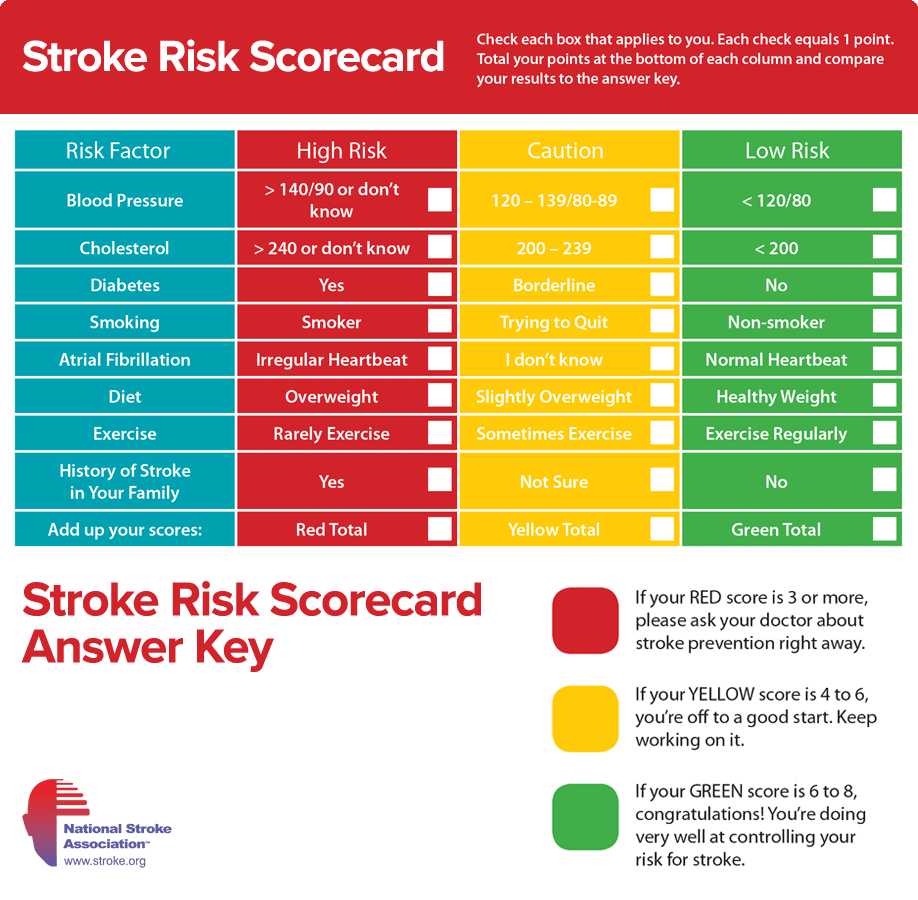Understanding Stroke Risk Factors
Anyone – males, females, people of all ages and races – can have a stroke; however, certain risk factors can increase your stroke risk. Knowing those risk factors and working with your primary health care team to lower your risk can reduce your chance of having a stroke.

Remember: If your RED score is 3 or more, talk with your primary care doctor about how to manage your stroke risk.
